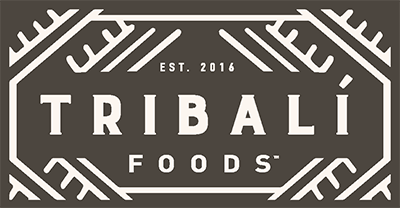
We pride ourselves on our standards and our quality sourcing methods, but when it comes to carefully curating our ingredients, we also consider sustainability. Sustainability is defined as the process of maintaining change in a balanced fashion to ultimately enhance the current and future potential to meet human needs. In honor of Earth Day this month, we are offering ten tips on how you can create a more sustainable kitchen and lead a low-waste lifestyle.
#1 Buy in Bulk

When shopping for foods like coffee beans, dried fruit, legumes, nuts, seeds and whole grains purchase them in bulk. Instead of buying bulky bags and oversized plastic containers, bring your own reusable containers from home and head straight to the self serve section of your natural grocery store then grab a scoop and fill up! Bringing your own reusable containers, eliminates unnecessary plastic packaging in your home.
#2 Create Your Own Nut Butters and Milks

As you eliminate plastic packaging by purchasing certain foods in bulk, take it one step further by creating your own homemade nut butters and nut milks. Think of items like almond butter, cashew milk, oat milk and sunflower seed butter. All of these items are delicious, but they come in plastic packaging, so eliminate any extra kitchen waste by channeling your culinary creativity and whipping up your own nut butters and milks.
#3 Find a Reusable Water Bottle

While you are minimizing plastic waste in your kitchen and home, upgrade your plastic water bottle to a reusable water bottle. You most likely already have one (or more) stashed away or buried in your kitchen cabinets or pantry, so go on a mission to find them and put them to good use. Remember to use reusable water bottles for more than just water though. Fill them up with your morning coffee or tea and even your afternoon juice or smoothie.
#4 Get New(ish) Grocery Bags

Ditch plastic and paper grocery bags altogether and use your own canvas tote bags instead. Now you can finally put that complimentary promotional bag to good use! You can even repurpose old beach bags and backpacks. Place them in your car or by your front door so you always remember to use them when you grocery shop.
#5 Hit the Farmer’s Market

Farmer’s market finds usually don’t have any extra packaging, just fresh, local, organic and seasonal produce so swing by your local farmers market and see what gems you can find. Looking for a farmer’s market in your local community? Check out the USDA National Farmers Market Directory.
#6 Opt for Cloth Napkins

Stop saving the cloth napkins for holidays and special occasions and consider using them all year long. Abandon single use paper napkins and towels and find fun colors and patterns to compliment your personal style.
#7 Recycle
When you purchase your favorite foods, be sure to recycle the packaging. All of our meats come packaged in recyclable boxes so be sure to flatten them appropriately and place them in your home’s recycle bin. Something so small can really make a big difference in our world!
#8 Repurpose Food Scraps

Eating real, whole foods like fresh fruits, vegetables and hearty whole grains can create unwanted food scraps, but instead of tossing them in the trash, re-purpose them. Place any extra fruit pieces in your next smoothie and use extra veggies in your next batch of homemade soup, stew or spread. If you still have some food scraps leftover then place them in your kitchen compost pile.
#9 Stock Up on Beeswax Paper

Single use plastic wrap like cling wrap and saran wrap can be frustrating to use, so instead of cutting your way through miles of plastic wrap, upgrade how you store your leftovers by using beeswax paper. Made with beeswax, organic cotton, organic jojoba oil and tree resin, beeswax paper is reusable for up to one year and is completely compostable.
#10 Upcycle

Take an inventory of your kitchen and see what items you already have on hand then upcycle and repurpose them. Items like glass mason jars are great to store leftovers, especially soups, stews and stocks. However, if you don’t have any mason jars, get creative by repurposing used jam and jelly jars or pickle jars and olive jars. These can easily be washed and upcycled into glass storage jars for other items in your kitchen or home. Think about it, your old pickle jar can become the perfect storage spot for your new bamboo kitchen utensils.
Celebrate Earth Day all year long with these ten tips so you and your family can lead and live a low-waste, sustainable lifestyle.
Join our Tribe of foraging foodies who travel the world to bring back the most flavorful meals to you, your family and friends. Join our community by following us @tribalifoods.

HELLO@TRIBALIFOODS.COM >
your mind — we’re glad to help!
hello@tribalifoods.com
your mind — we’re glad to help!
hello@tribalifoods.com








